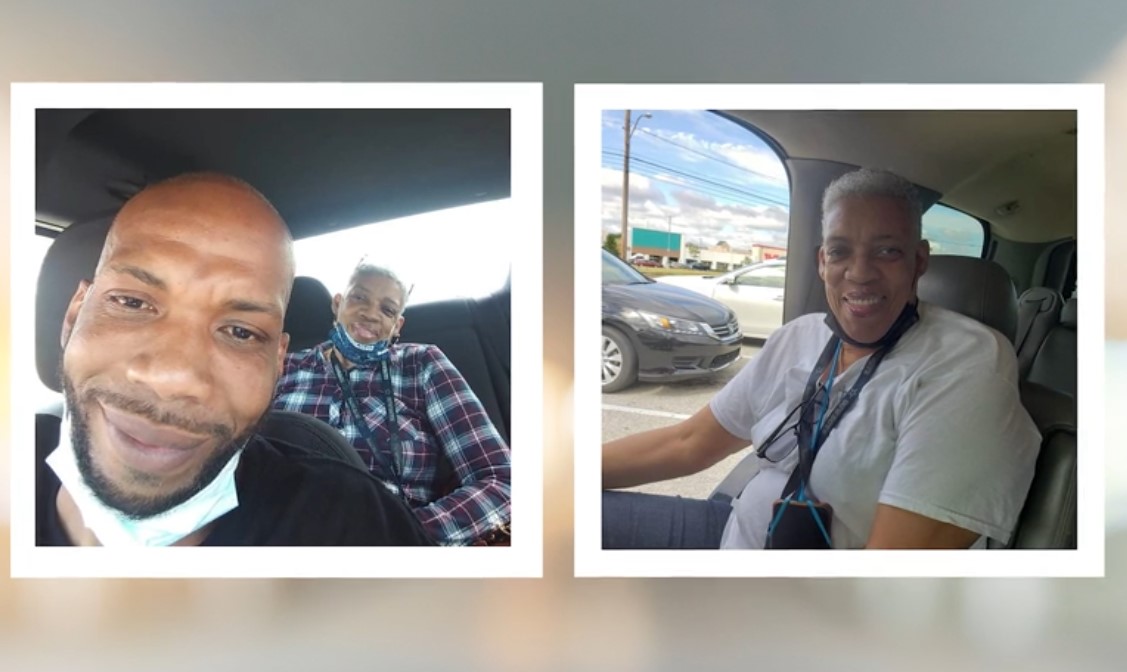MEMPHIS, Tenn. — Countless bus rides, multiple job interviews, but no job offer. One Memphis mother says it’s been hard to find work with a felony record, and she’s not alone.
Some believe change could be far reaching.
It took a while to get here, but Gabrielle Churchman will tell you she’s one of the lucky ones. Churchman’s story starts when she was a teenager, and her life took a turn.
“My grandmother had a stroke and then I had to go stay with my mom. Things changed,” she said. “I started going to stores, because my brothers had no food or clothes. I started stealing.”
She says her mother was absent, and at 14 years old, she took care of her younger brothers.
“I dropped out of school and that’s when I started doing stuff. Like, 16-17. Doing little stuff. Catching charges. Theft charges,” she said.
Churchman said every time she tried to get on the right track, something would happen.
“It’s like when that’s the only way you know how to survive, it’s like you have to survive. It’s more like survival,” she said.
In 2018, she was charged with a felony for trying to provide contraband to a federal inmate — her father. She blames herself.
She served her time and is now trying to rebuild her life, not just for herself, but for her children. She says finding stable work was a challenge.
“So, you go to 10 places a day,” she said. “Keep in mind, you don’t have a job, so you don’t have a car, so you have to catch the bus.”
Sometimes she took multiple buses to get to an interview, just to be denied the job because of her felony record.
“You don’t think I would do this every day for my kids?” she said. “I’d jump off a bridge for my kids. You don’t think I would catch two buses to go to work to provide for them?”
“If they can’t work in the mainstream economy, they’re going to find work that’s under the radar … “
Josh Spickler, Just City
According to research by the Prison Policy Initiative, the unemployment rate for formerly incarcerated people is nearly five times higher than the unemployment rate for the general public.
For those who were formerly incarcerated and are black or Hispanic, especially women, they face even higher unemployment rates.
When ex-offenders re-enter society, find employment and housing, it anchors them and their families. Research shows when a nonviolent offender lands a stable job, they are 20% less likely to fall back into a life of crime.
But that can be difficult.
“If they can’t work in the mainstream economy, they’re going to find work that’s under the radar, that doesn’t report taxes, that doesn’t get credit and doesn’t help our community pay for the things we need like roads and bridges and sewers,” said Josh Spickler with Just City, a criminal justice reform advocacy group in Memphis.
Spickler said employers think there are legal risks when they hire someone with a felony. Their past record many impact job performance or safety.
“There’s great data, both qualitative and quantitative, that people coming out of the criminal legal system are better employees. They’re more productive and loyal. They have something to prove,” he said.
Several studies show when a company receives two job applications that are identical, except that one candidate checked a box indicating they have a criminal record, the ex-offender is less likely to land an interview.
Shelby County Mayor Lee Harris says that’s why he pushed to “Ban the Box.”
“The way that ban the box works,” he said. “It says look if you are an ex-felon, you don’t need to identify yourself as an ex-felon in your job application.”
It went into effect last July. Harris said the county has hired several ex-felons under the policy.
Harris said they’ve held summits to convince the private sector to follow suit. Home Depot says it has already implemented the policy.
We believe everyone should have the chance to show their qualifications for a job opportunity and don’t ask about criminal history on our employment application. We’ve also backed criminal justice reform and programs that support rehabilitation.
Statement from Home Depot
We reached out to a dozen private businesses in the Mid-South. Kroger was the only other company to respond. The company said while it asks about criminal history on applications, it is working with city programs to give ex-offenders a job.
Kroger Logistics is very proud to partner with The City of Memphis Manhood University Initiative to help those in need of a second chance. So far, we have recruited five Manhood University and Women Offering Women Support (WOWS) attendees to the Kroger Family in the last two months. At Kroger, our motto is “come for a job, stay for a career”. We want to establish a pipeline to success from The City of Memphis to our Memphis Logistics Center and we believe we are off to a great start.
Statement from Kroger
One thing people agree on is that “Ban the Box” is just a piece of the puzzle, and that more reform must happen.
In Tennessee, it was hard and costly to get a record expunged, but a new law will allow more felons to apply to get their record expunged and give clerks the option to charge up to a $100 fee.
Shelby County Criminal Court Clerk Heidi Kuhn said that by July 1, her office will eliminate fees.
| Shelby County to waive $100 expungement fee starting in July →
In the meantime, non-profits have picked up the slack to get ex-offenders a job.
LifeLine to Success employs 41 former felons to help with landscape and services, while offering counseling and support as they reenter society.
“We began LifeLine to Success 11 years ago, because when I came home from prison, I found there were no opportunities for people who had served time,” DeAndre Brown said. “I see most of the time that people just need an opportunity.”
Churchman will tell you that’s what she needed. She now works for LifeLine to Success, and she says she’s determined to keep moving forward.
“I wish people would see that more. You know, see that I’m trying,” she said.
Recently, Gov. Bill Lee signed into law the Re-Entry Success Act, which will create a supervision program for people getting out of prison and reduce liability for employers who hire people with a criminal record.




























